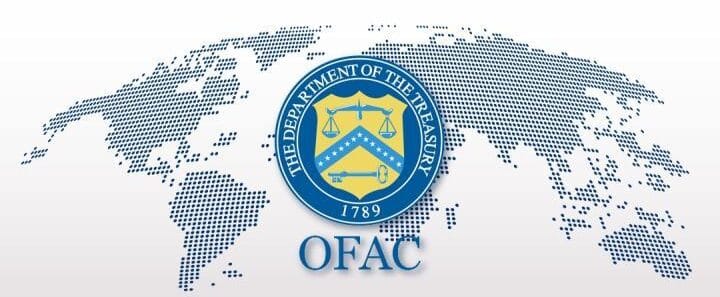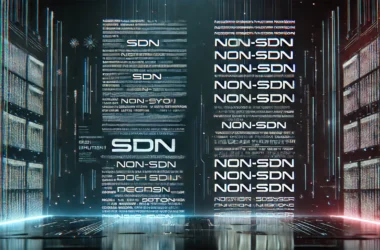Beginning in 2025, the U.S. Office of Foreign Assets Control (OFAC) increased its sanctions programs to target major energy organizations along with specific individuals and vessels identified as threats to international stability. The action was a component of U.S. strategies aimed at disrupting financial networks that fund activities posing threats to world security.
Compliance professionals must understand OFAC operations and its sanctions lists to develop effective monitoring systems and prevent facing serious penalties.
This guide describes the operation of OFAC sanctions and outlines which parties they affect while detailing the necessary compliance actions for financial institutions.
What Is OFAC?
The Office of Foreign Assets Control operates as an agency within the U.S. Department of the Treasury. The Office of Foreign Assets Control (OFAC) implements and enforces United States sanctions on economic and trade activities to support national security and foreign policy goals.
OFAC manages multiple watchlists such as the Specially Designated Nationals (SDN) and Blocked Persons List which contains individuals and entities who:
- Act on behalf of targeted governments
- Are involved in terrorism activities
- Engage in drug trafficking networks
- Perpetrate human rights abuses
Without prior authorization U.S. people and corporations cannot engage in business transactions with these listed parties.
What Are OFAC Sanctions?
OFAC sanctions prohibit financial transactions with designated individuals as well as organizations and countries. They are designed to:
- Cut off money supply chains that support terrorism operations, nuclear technology proliferation, and organized crime
- Deter human rights abuses
- Influence foreign policy behavior through financial pressure
In 2023 alone:
- OFAC’s SDN list received more than 1,600 new entities and 800 new individuals
- Financial institutions faced fines totaling $1 billion for non-compliance
Why Do OFAC Sanctions Matter?
Sanctioned nations face exclusion from international financial systems and diplomatic channels. Financial institutions and businesses face serious consequences when they fail to perform screening against OFAC’s lists for their customers and transactions.
- Massive financial penalties
- Reputational damage
- Legal exposure
- Loss of access to U.S. financial systems
Fulfilling OFAC requirements serves as both a legal necessity and a method for minimizing organizational risks.
How Does OFAC Authority Work?
The power of OFAC comes from various Executive Orders and federal laws including the International Emergency Economic Powers Act (IEEPA).
Sanctions can be applied to:
- Entire countries (e.g., Iran, North Korea, Syria)
- Specific sectors (e.g., Russian energy or defense)
The SDN list enables OFAC to designate specific individuals and companies for sanctions.
These designations empower OFAC to:
- Freeze assets
- Block financial transactions
- Prohibit trade and investment
Primary vs. Secondary Sanctions
OFAC sanctions fall into two broad categories:
1. Primary Sanctions
U.S. persons including citizens, residents, and businesses must not conduct business transactions with sanctioned parties.
2. Secondary Sanctions
OFAC enforces secondary sanctions against foreign businesses that interact with designated parties regardless of their U.S. ties.
Secondary sanctions allow OFAC to regulate international financial institutions because they face risk when supporting prohibited transactions.
What Is the SDN List?
The Specially Designated Nationals and Blocked Persons (SDN) List contains:
- Governments of sanctioned nations
- State-owned companies
- Terrorist networks
- Narcotics traffickers
- Cybercriminal organizations
The U.S. financial system shuts off access to any individual or entity listed on the SDN List.
Entities based in the United States need to freeze assets belonging to SDNs and submit a report of this freeze to OFAC.
OFAC Sanctions Are Divided Into Three Distinct Categories
1. Country-Based Sanctions
Apply to entire nations and their citizens. Trade and investment transactions with countries such as:
- Iran
- North Korea
- Syria
- Russia
- Cuba
…face restrictions under these sanctions.
2. Sectoral Sanctions
Sectoral sanctions aim to isolate specific parts of a foreign country’s economy such as energy or defense industries while stopping short of a total transaction ban. These sanctions create strategic pressure but maintain diplomatic flexibility.
3. List-Based Sanctions
Sanctions restrict individuals and entities that appear on the SDN list. Sanctions can function alone or when paired with additional sanction types.
OFAC’s 50 Percent Rule
The rule imposes sanctions on entities that have 50% or more ownership from individuals or organizations listed on the SDN list even though these entities themselves may not appear on that list.
Beneficial ownership screening is required by institutions to identify indirect connections to SDNs.
What Is an OFAC Check?
OFAC checks involve the screening of people and business entities along with their financial transactions using OFAC sanction lists.
This is a critical step in:
- Customer onboarding
- Ongoing due diligence
- Transaction monitoring
- Payment screening
Institutions face significant compliance penalties when they do not perform OFAC checks.
How Should Financial Institutions Conduct OFAC Checks?
To meet 2025 compliance standards, organizations should:
- Ensure that every customer, vendor, and transaction is checked against the most recent SDN and all OFAC lists
- Keep ongoing surveillance to detect updates or new entries to OFAC lists
- Develop tailored risk-based screening procedures based on organizational size, sector, and exposure
- Maintain detailed records and perform audits of all regulatory screening procedures
Sanctioned Countries in 2025
Common regions under OFAC sanctions include:
- Russia (sectoral and full sanctions)
- Iran
- Syria
- North Korea
- Cuba
- Ukrainian regions of Crimea, Donetsk, and Luhansk
Note: Residents of these territories need a special license from OFAC to proceed with transactions.
Penalties and Enforcement
OFAC reached its peak enforcement year yet by implementing fines totaling more than $1.5 billion through 17 enforcement actions in 2023.
Penalties vary based on:
- The nature of the violation
- Whether it was voluntary or willful
- Whether the institution’s compliance program was operating at optimal performance
Final Thoughts from BeVerified.org
Financial institutions in 2025 will advance past simple screening methods to achieve more comprehensive compliance measures.
A modern OFAC compliance strategy includes:
- Real-time monitoring
- Risk-based escalation
- Beneficial ownership analysis
- Integration into broader AML frameworks
OFAC compliance remains mandatory regardless of whether your operations are domestic or international. Operating in the global financial system requires strict adherence to OFAC compliance, which forms a fundamental basis for earning and maintaining trust.
Stay informed, automate wisely, and always verify.


